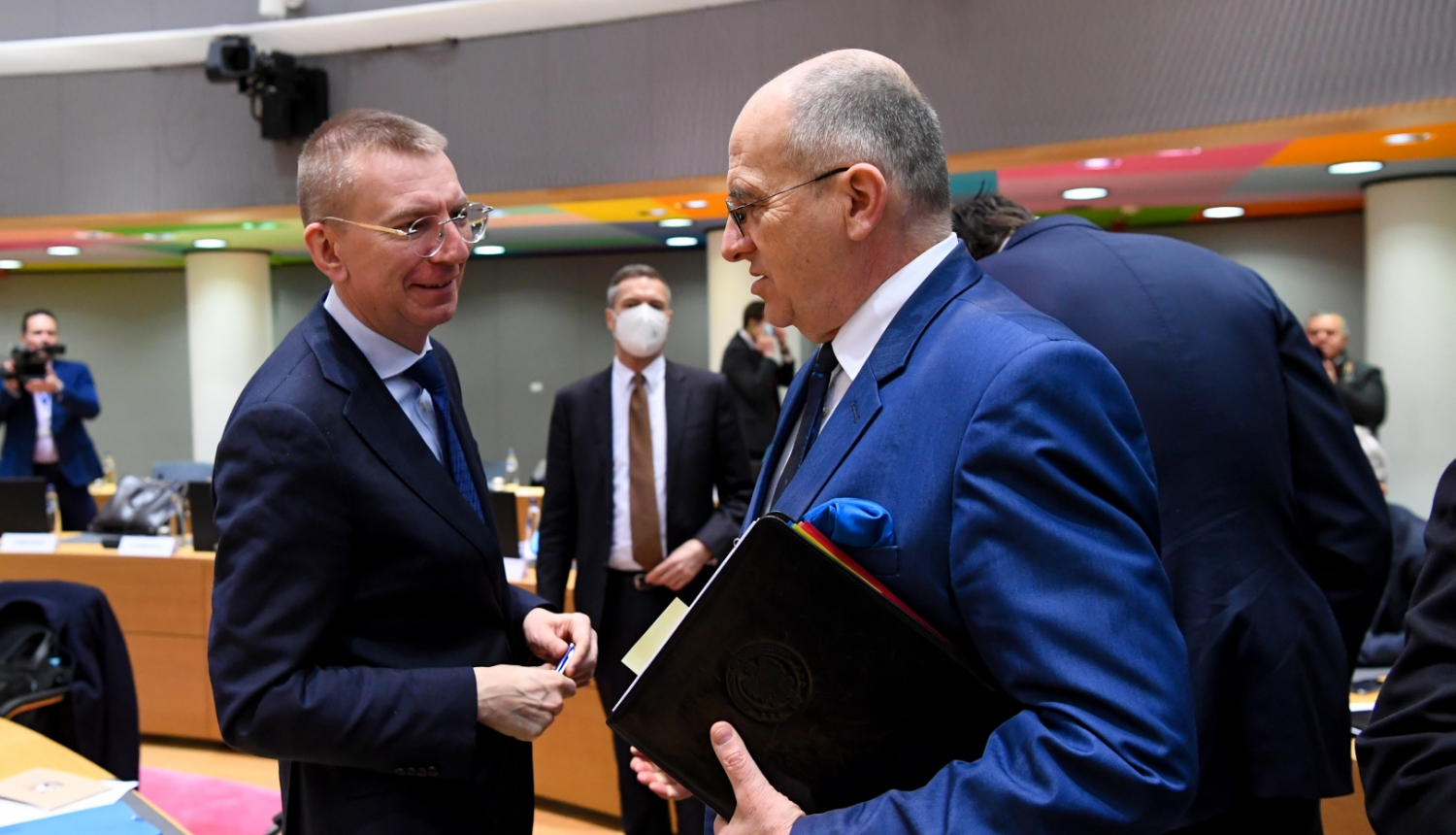On 21 March 2022, the Latvian Minister of Foreign Affairs, Edgars Rinkēvičs, took part in place in the meeting of the European Union’s Foreign Affairs Council in Brussels, featuring a discussion among the EU foreign ministers on the Russian Federation’s aggression against Ukraine and the situation in the Sahel and Mali. EU ministers of foreign affairs and defence also had a joint exchange of views on the EU’s Strategic Compass for security and defence.
Edgars Rinkēvičs stated that maximum international pressure must be continued on Russia to achieve that military action in Ukraine is stopped. It is also vital to maintain Russia’s international isolation and condemnation of its aggression against Ukraine.
The top priority is to stop Russia from targeting the established humanitarian corridors through ensuring ceasefire and preventing threat to the evacuation of civilians and deliveries of humanitarian aid, the Minister said. He underlined that coordinated humanitarian assistance efforts by the United Nations and the EU must be continued.
The Foreign Minister expressed support for assistance to Ukraine in enhancing its military capabilities. He said he was certain that further, stronger sanctions must be developed and imposed on Russia and Belarus while considering the ways for the EU to put aside energy supplies from Russia. We must continue countering war propaganda and disinformation spread by Russia. The access by people in Russia to independent media must be promoted, including through support for the activities of Russia’s independent media in a safe environment and the accessibility of alternative information on social media platforms, Edgars Rinkēvičs underlined.
The Minister expressed Latvia’s support for granting status of an EU candidate country to Ukraine.
The Council then held an exchange of views with the Minister of Foreign Affairs and European Integration of the Republic of Moldova, Nicu Popescu, as well as identifying main challenges to the management of the influx of refugees from Ukraine currently faced by Moldova. Edgars Rinkēvičs thanked Moldova for its huge efforts of receiving Ukrainian refugees and he noted that Latvia was committed to continuing its bilateral support for Moldova. Latvia supports Moldova’s path towards integration with the European Union, the Minister said. In accordance with the Association Agreements, Moldova is expected to achieve political and practical progress with the implementation of reforms and democratisation. At present, Moldova’s resilience must be enhanced, especially in the energy sector, so as to reduce its dependence on Russia, Edgars Rinkēvičs noted.




